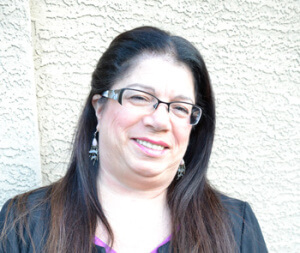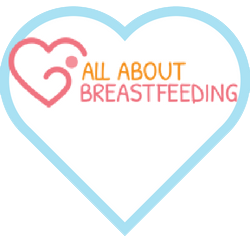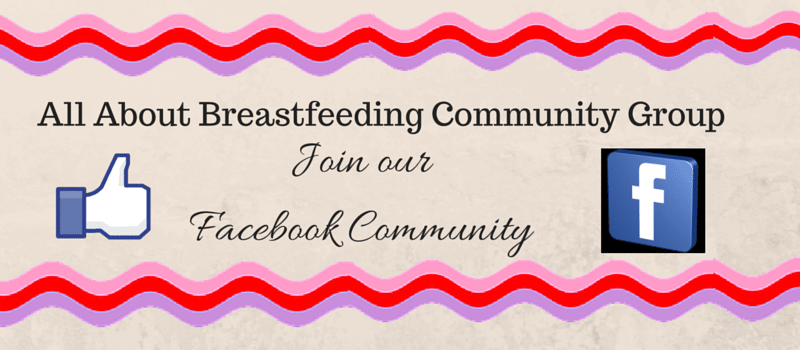On the last Just Lori show, which was episode # 401, I told the story of Amanda and shared with you the breastfeeding challenges she was struggling with. During the course of our consult, Amanda gradually began to realize that the breastfeeding advice she was given by her pediatrician was, well, I am just going to say it… stupid. It was stupid. It was negligent. Why does this really piss me off? Because stupid and negligent advice can ruin a breastfeeding relationship.
As an IBCLC who has dedicated her work life to supporting, educating and advocating for the breastfeeding family, my hope is that all mothers receive excellent breastfeeding help which is evidence based, consistent and accurate.
If you are a mother whose greatest wish is to breastfeed your baby, than I want to do all I can to help you make this happen. I often can be heard saying that I am greedy – I want to work with you so your baby is well fed, gains appropriately and is breastfeeding. Yes, I am greedy – I want it all.. A well fed baby and a happily breastfeeding mother.
As we neared the end of our consult and Realizing just how off base the advice she was given by her pediatrician, Amanda asked me: why there is so much conflicting advice, inconsistent advice and poor advice on breastfeeding out there. She realizes now that with all of the various breastfeeding helpers, including her pediatrician she was given some pretty poor advice.
My short answer to her – is that there is a lack of excellent breastfeeding education in medical and nursing school. I told Amanda that I would let her in on a BIG secret! It is very likely that your pediatrician only had 1-2 hours of breastfeeding education in all their 7 plus years of medical school and residency. Since this comes as a big surprise to most parents that I share this with, I wanted to take the time during todays show to elaborate on this very issue.
Mothers tend to assume that the providers they will see on a regular basis for their babies healthcare, are experts in breastfeeding and this is far from the truth. Mothers tend to assume that the providers they will see on a regular basis for their babies healthcare, will be able to give them the time they need to help them with breastfeeding and this is far from the truth. Mothers tend to assume that the person who answers a breastfeeding hotline is an expert in breastfeeding and this is far from the truth.
Now, I don’t believe in saying always or never. I do believe that there are times when you can get good help from pediatricians and other providers.
Now, perhaps these people can help you and advice you appropriately, but what if you think they can and they think they can, but they really can’t? And you don’t know that they can’t?
My advice: Don’t ask for breastfeeding advice from people who are not experts in the field of lactation. Just don’t.
My reason for such a strong statement? It all has to do with the fact that breastfeeding is way too important to you to rely on the help from others who are not experts on this subject. You just don’t want to take a chance especially if you are having struggles with breastfeeding, you want to be sure that the person you are seeking help from, really and truly knows their stuff.
You might start off by asking me why I am highlighting pediatricians. Well, when you think about it, who are most mothers taking their baby to for checkups in the first several weeks of their babies life? A majority are taking their babies to pediatricians, who are doctors that specialize in caring for children. Since I know that parents are also taking their babies to their midwives, family doctors and nurse practitioners and naturopathic physicians, as well as pediatricians, I will also be using the term providers interchangeably from this point on.
I am going to interrupt myself here for a moment as I want to avoid any of you who work with providers who are experts in breastfeeding or who are experts in breastfeeding and you are saying to yourself – Not me! You are right. You know who you are. So don’t take offense here, I am obviously not talking about you.
To the wonderful pediatricians and providers that I know and love who are either experts in breastfeeding or to those who respect the field of IBCLCs and encourage breastfeeding moms to seek a one on one consultation for their breastfeeding challenges, I thank you. To those of you who do have pediatricians and providers who are well versed in breastfeeding challenges and who have taken on additional learning opportunities outside of medical school, so that they can be a valuable person to you on your breastfeeding journey, I would like to extend a heartfelt thank you, to you also.
Coming back to my case that I am going to lay out for you as to why you do not want to just assume your provider can help you with breastfeeding, I am first going to acknowledge
This might make you mad or you might not believe me when I say things like – your provider might not be the best person to go to for breastfeeding help or advice. This is my professional opinion and I stand by it. I don’t have to look too far to support my case.
In the Pediatric Gastroenerology Nutrition online article published in September of 2017 titled: Important role of medical training cirriculum to promote the rate of human milk feeding, it states –
The fact is that many pediatricians are well aware of the benefits of human milk and breastfeeding. Beyond that, The number of physicians and nurses who can provide proper guidance for human milk feeding and offer appropriate knowledge and techniques to allow the most beneficial and convenient manner of breastfeeding is quite deficient.
Another organization is recognizing the importance of making changes in breastfeeding education. Knowing that education is lacking in medical schools, The Academy of Breastfeeding Medicine presented a statement concerning inclusion of BF medicine in the educational objectives for undergraduate and graduate medical education curriculum in 2011 The statement strongly suggests that medical students learn about BF medicine, which includes the anatomy, endocrine control and physiology of breast and mammary glands, biochemical and immunological aspects of human milk, and the influence of BF on individual health and social issues. It also suggests that medical student have multiple opportunities during clinical training to participate in solving BF-associated problems and in supporting and encouraging BF. I am sad to say that this has not yet happened. If you don’t believe me, go ahead and ask your provider – How often did you get to shadow an IBCLC and how many hours did you spend in medical school in helping mothers solve breastfeeding challenges? Listen, many of you attend open houses to find out more about your pediatrician. You want to be sure you feel comfortable with them and are asking questions about vaccination and circumcision and antibiotic use. You want to know where they went to school and how long they have been a doctor. You want to know their level of expertise in caring for newborns. Don’t be shy to ask specific questions about their breastfeeding training.
Dr. Helen Johnson is a general surgery resident at East Carolina University co-authored an article in the Journal of Graduate Medical Education august 2019. This article states that – Many working women face challenges that limit the duration of breastfeeding, and female physicians are not exception. She states that: Ironically, physicians have some of the lowest rates of breastfeeding in the United States. Despite acute awareness of the medical risks of not breastfeeding and deep commitment to educating their patients about the importance of breastfeeding, many physician mothers face significant challenges in their own breastfeeding efforts. Medical trainees – including medical students, resident physicians, and fellows – are among the most vulnerable.
The articles goes on to explain the specific challenges physicians have with breastfeeding and states that only 28% of physician mothers met their breastfeeding goals. They also know that those who aren’t successful themselves don’t advocate as well. They may introduce their own biases to the breastfeeding mothers they work with or may even discourage breastfeeding in their patients. I applaud the various organizations for doing the hard work of turning this situation around. However, where we stand now is far from where we need to be.
The AAP also recognizes the lack of breastfeeding education among their physicians. They have developed a comprehensive action plan that includes recommendations for addressing – gaps in breastfeeding training and education for physicians. They want to ensure that all pediatricians and obstetricians and gynecologists and family physicians have the knowledge and clinical skills to support the mother in meeting her breastfeeding goals. I applaud the AAP for working hard towards these goals and I look forward to the day when they have moved beyond the implementation process and a full scale curriculum is in full swing in all medical and nursing schools.
Why is it so upsetting that other providers do not have the expertise to help and guide you, but do so anyway
…New moms, on average, have about 2-3 interactions with their babies provider in the first 1-2 days during their hospital stay. When moms give birth at home or in a birthing center, they are likely to have their baby examined by their midwife – once after the birth and again in day later and perhaps another day or 2 later at a postpartum visit. So we can say that the average mom has their baby examined 3 times, by their provider in the first 4 days of life, in which there are 3 opportunities for breastfeeding evaluation and education.
Typically there are several more visits with your postpartum nurse during your hospital stay. They are the people who will be asking questions about breastfeeding and offering advice. For moms who give birth at home or in birthing centers, they will typically have access to a postpartum nurse or a doula who will also be asking questions about breastfeeding and offering advice. So, we can say that the average mom is seen and been helped at least an additional 3 times… all in the first 4 days of a babies life.
This adds up to about 6 visits in which you will be asked how breastfeeding is going by providers others than lactation consultants. If we do not get to see you, or if our visits are very short, which they typically are during your hospital stay, you are relying heavily on providers other than IBCLCs to help you with breastfeeding. Even if I were to see you during your hospital stay, it is unlikely that I am there when you are being discharged. Therefore, you may be asking more questions and are being given a feeding plan by your discharge nurse and not by me. When I worked in the hospital, I did my best to see every breastfeeding mom during their stay, but rarely did I get to see a mom during her discharge planning. And a lot can happen with breastfeeding from the time your baby was born and you were discharged.
Over the course of the next 10 days, you may be seen by your pediatrician 2-3 times. All of these visits, with professionals other than IBCLC’s, add up to about 10 hands on visits with providers other than IBCLCs. These visits are important for your baby’s health, however, they may not need your breastfeeding needs.
This is unfortunately the way the system is set up. You have easier access to other providers than an IBCLC. Unless you know any different, it is totally understandable that you will be asking questions and looking for breastfeeding help and guidance from the providers you see the most after your baby is born. If I didn’t know any different, this would make reasonable sense to me.
I want you to have scheduled your breastfeeding check up, but the system does not support this.
What is a breastfeeding check up you ask? Well, I have coined the term myself. The way I see it, your provider provides a mommy check up for you before you are discharged. This gives you an opportunity to be seen, examined and ask any question you have at this point. Your provider whether it be your doctor or midwife or your postpartum nurse, they have hundreds and sometimes thousands of hours experience with pregnant, laboring and postpartum moms. This is their field of expertise and I would never offer advise in this area.
Your baby is provided with a check up before you are discharged from the hospital. They are examined by the pediatrician, the medical specialist for your baby, to be sure that your baby is fit for discharge. This gives you another opportunity to ask any questions you have about your baby. You will also be following up with your pediatrician with a day or two of discharge.
But, but, but, where is your breastfeeding check up before discharge- when do you get to sit with an IBCLC who evaluates a breastfeeding, who checks position and latch and who is checking to be sure that your baby is doing a good job of transferring the milk you are making from your breast and into their mouth. When do you get to sit with an IBCLC who is taking a look at your breast and nipple anatomy and your baby’s oral cavity and assessing these for breastfeeding? Who is making sure that you have another breastfeeding checkup within a few days of discharge just to be sure feedings are going well and for you to ask additional questions about things that have come up in the last day or two since discharge from hospital or birth center?
Some are under the impression that going to the pediatrician and having your baby weighed is your breastfeeding check up. Being that a good breastfeeding checkup takes a good hour or so, your 10 minute dr. appointment is definitely not what a good breastfeeding check up is all about. That is just, well, going to the doctor to see what your baby weighs.
If your baby is not gaining well or losing too much weight, if breastfeeding is hurting you, or you feel your supply is low, or you are struggling to keep your baby awake for feedings and your breastfeeding issues are causing your frustration or anxiety, well, let me tell you… going into your pediatrician or other provider to just have your baby weighed or their bilirubin checked, will not, by itself be too helpful when it comes to breastfeeding.
Why? I will tell you that on this show I have interviewed pediatricians from all around the world, I have interviewed pediatrics dentists and nurses and midwives – Every single one has told me that they had little to no breastfeeding education in all their years of training to get their credentials. In the United States I find that some midwives do receive a few hours of training, however, most will tell you, this is not their field of expertise. In the UK and other countries, I have interviewed moms and other midwives who tell me that they have fairly good breastfeeding education, but here is the clincher – they spend 95% of their time caring for you during your pregnancy, birth and postpartum and just do not have the time, and many not the interest, to help your with breastfeeding, other than the basics. Most tell me that they do not have the time to have a comprehensive pp visit with you and then spend another hour with breastfeeding. So, in some cases providers have the knowledge, but not the time.
1 hour was the average time spent on breastfeeding for every pediatrician I have interviewed. One hour. That is it! If you don’t believe me, don’t be shy. Ask your pediatrician what is the name of the breastfeeding class they took and how many hours was it? Here is what pediatricians have told me – There 1 hour spend on breastfeeding education was just to tell the providers that they should support you with breastfeeding as it is healthy for mom and baby.
Because they have not had formal and comprehensive breastfeeding education, Often the advise they are giving you is what they read in a textbook or they heard another pediatrician say during their training. They may have breastfed 1 or 2 babies and think that whatever their breastfeeding life was like, that it is the same for every mother and baby. That is just crazy pants. It is like saying that every pregnancy is the same for every mother. And we all know that is just not true. I have yet to meet a pediatrician who had to sit through a complete breastfeeding checkup and a complete lactation consultation during their training. Not even one!
I sympathize with providers who are expected to know such detailed information about such an important issue, but have not been trained in it. They are at a deficit.
Many do not know how to help you achieve a good, deep latch. They do not know how to show you different positions if you are not comfortable. They do not know how to tell if your baby is transferring milk. What do they know? Pretty much what the scale tells them – your baby is losing, or not gaining as much as expected, or gaining well.
So, when things are not going well, what happens? You are given the same advice they give probably all the mothers in the practice. Here are the top 5 pat answers you will be given when breastfeeding is not going well – either you are experiencing poor weight gain or painful breastfeeding. If you remember Amanda’s story, these responses will sound familiar:
You need to switch to formula because you are not making enough milk.
Breastfeed for 10 minutes on each side and then follow up with 2 oz of formula.
Don’t feed your baby so often. This is why breastfeeding is hurting and your baby is falling asleep at the breast because they are not hungry yet. Wait 4 hours and when they are really hungry, they will feed better. And if you are not feeding so often, your nipples won’t hurt.
Switch to pumping and giving them your milk in a bottle.
The last piece of advice – come back in 2 days so we can weigh your baby again. If they are gaining well, you can go back to breastfeeding.
Now, I am not saying that with this advice, your baby will not gain well in 2 days.
I am not saying that if your nipples are cracked and bleeding, they will not heal in 2 days.
You may very well succeed in these 2 areas.
However, where was your breastfeeding checkup?
In 2 days you can go back to breastfeeding, but if you don’t correct the latch or find out why your baby was not transferring milk well, the return to breastfeeding is going to be a horror show because the same problems will arise again. Your baby gained weight and your nipples healed, but no one got to the root cause of your breastfeeding problem. If you don’t know what this is, how can you possibly solve it.
Often times, you have added more problems to the mix – the baby that was given formula only and you were not told to pump – well your supply will be lacking. the baby that was given bottles, may begin showing a strong preference to the easy and quick flow from the bottle and kick and scream at your breast when trying to latch him on. The baby that was not latching on well and is still not latching on well, will cause your nipples to begin to crack and bleed all over again.
So, I ask you again? Where was your breastfeeding checkup? This piss poor lactation help many mothers get is the #1 reason for the fact that 85% of mothers begin breastfeeding right when there baby is born. They do this because they want to. But a few weeks later, this number has easily dropped to half. This didn’t happen because they all of a sudden, decide they no longer wanted to breastfeed. This happened because they had some struggles and did not receive the proper help and support. Again, this is not my personal opinion. It is a fact. You can go to the CDC breastfeeding report care and find out more detailed information on these facts.
And to answer Amanda’s question as to why there is so much inconsistency in the advice moms are given? It is because when other providers get little to no training in lactation, they just don’t know how to really help you & the bigger problem is – that they don’t know what they don’t know. Meaning, many providers often think they are being helpful. When clearly they are not.
Now, just to jump in here for a minute to re-state something I said in the beginning of this show….. that you may very well be fortunate and have an excellent provider who has had breastfeeding education and is wonderful and knows exactly how to help you with early breastfeeding challenges. If this is the case, you are gosh darn lucky. That is all I can say. However, this is rare. I even know some pediatricians who are knowledgeable about breastfeeding, but they do not have 60-90 minutes to sit with you and provide you a complete lactation consultation. Why am I very, very, happy with these pediatricians though? Because they do know, what they know & they do know that you need individual help and they do refer to IBCLCs if they cannot take the time they know you need. Love those providers.
Just in case you missed this about me, I am a proud IBCLC and have been practicing for over 20 years. As an IBCLC, I am a health care professional who specializes in the clinical management of breastfeeding. I have seen moms during their hospital stay in the postpartum unit, I visit with moms who have had home births, birthing center births, I see them in the NICU and in their own home and in my office.
I said in the beginning of today’s show that I am so passionate about this subject because my greatest hope for each of my listeners and for all moms who so dearly want to breastfeeding, is that you are getting help and advise from a breastfeeding specialist as this is very, very important to your breastfeeding journey and very necessary, particularly if you are having breastfeeding challenges
Your Online Breastfeeding Class
Learn how to breastfeed – Be comfortable. Be confident.
The learning continues well beyond the average breastfeeding basics class that is 60-90 minutes. In this class, we have over 15 hours of audio lessons, combined with many hours of videos to help support what you are learning. We cover breastfeeding and medication safety, what to do if your baby does not latch on, common breastfeeding challenges, tongue tie, premature babies, building a good supply, returning to work and pumping. Take a look at the list below and follow the link to the class page so you can see more specifics of what is covered. I want to ensure that we got you covered and that you have great support well beyond the newborn days.
- Using your pregnancy time to prepare for breastfeeding
- Tips on how to prepare your home for a newborn
- Specific details about the first 24 hours after birth.
- Exactly what to expect the first two weeks after birth
- What can you do if your baby is not latching on
- Common and not so common breastfeeding challenges
- What you can expect over the next few months
- Returning to work as a breastfeeding/pumping mom
- Pumping and storing your milk
- When to begin pumping and building your freezer stash
- How to make a smooth transition to postpartum life
- Lessons dedicated to partners and breastfeeding knowledge.
- Breastfeeding and the 1 year old
- Breastfeeding the toddler and beyond
- Tandem nursing
- Breastfeeding through a pregnancy
- Medication and mother’s milk
- Weaning
Once you register for the class, you have immediate access to:
- Audio Lessons
- Videos
- Educational handouts
- Helpful checklists
- Our “members only” group
- Weekly group LIVE Q&A sessions
Gain confidence in breastfeeding.
Expert advice from Lori J. Isenstadt, IBCLC who has over 25 years of experience in maternal health and lactation. I will help you navigate the ins and outs of breastfeeding.
Listen anywhere and anytime. Imagine not having to sit in a classroom or stare at a screen. You can learn all about breastfeeding while going for a walk, driving to work or running errands, traveling on a plane, train or bus. Because you can download the audios, learning is easy and convenient. Get ready to learn anytime whenever it’s convenient for you and your partner. You can be cooking dinner together and listening to the class. Perhaps relaxing together in the evening in your comfy clothes. You can learn together. Easy access to all class materials. Your class never expires. You’ll be able to listen and download the materials at your convenience.
You are not alone!
Once you are a student in the breastfeeding class, you have regular access to ongoing support for the whole time you are breastfeeding. You can have your questions answered by Lori J. Isenstadt, IBCLC, in our private group as well as our weekly live Q & A sessions. Just check out the Bonuses below to see how I provide you with ongoing support..
Exclusive Bonus #1
Immediate access to a private group for class students only. I will be answering your questions 5 days a week.
Exclusive Bonus #2
Invitation to join our weekly Q & A session with Lori and other students.
Exclusive Bonus #3
Need additional help? *25% discount off a private consult – for students only.
*If you are in the Phoenix metro area. use this link to schedule your Office or Home lactation consult.
*If you are out of the area, use this link to schedule a Skype call
Do you have a question about the class before you purchase? Send it to – aabreastfeeding@hotmail.com
 Register for the Breastfeeding class
Register for the Breastfeeding class
http://www.aabreastfeeding.com/audioclass
Additional ways to connect with me:
Like us on Facebook HERE:
http://bit.ly/2dNPlsC
Follow us on Twitter HERE:
@breastfeedingaz
http://bit.ly/2BfEIJ2
Follow us on Pinterest HERE:
https://www.pinterest.com/lorijisenstadt
Subscribe on iTunes the All About Breastfeeding show HERE:
https://apple.co/2FJGwsV
Lori J. Isenstadt, IBCLC
 Lori Jill Isenstadt, IBCLC is a huge breastfeeding supporter. She has spent much of her adult life working in the maternal health field. Once she became turned on to birth and became a childbirth educator, there was no stopping her love of working with families during their childbearing years. Lori became a Birth doula and a Postpartum doula and soon became a lactation consultant. She has been helping moms and babies with breastfeeding for over 25 years. Lori founded her private practice, All About Breastfeeding where she meets with moms one on one to help solve their breastfeeding challenges. She is an international speaker, book author and the host of the popular itunes podcast, All About Breastfeeding, the place where the girls hang out. You can reach Lori by email at: aabreastfeeding@hotmail.com or contact her via her website: allaboutbreastfeeding.biz/contact
Lori Jill Isenstadt, IBCLC is a huge breastfeeding supporter. She has spent much of her adult life working in the maternal health field. Once she became turned on to birth and became a childbirth educator, there was no stopping her love of working with families during their childbearing years. Lori became a Birth doula and a Postpartum doula and soon became a lactation consultant. She has been helping moms and babies with breastfeeding for over 25 years. Lori founded her private practice, All About Breastfeeding where she meets with moms one on one to help solve their breastfeeding challenges. She is an international speaker, book author and the host of the popular itunes podcast, All About Breastfeeding, the place where the girls hang out. You can reach Lori by email at: aabreastfeeding@hotmail.com or contact her via her website: allaboutbreastfeeding.biz/contact
your email address will not be published






